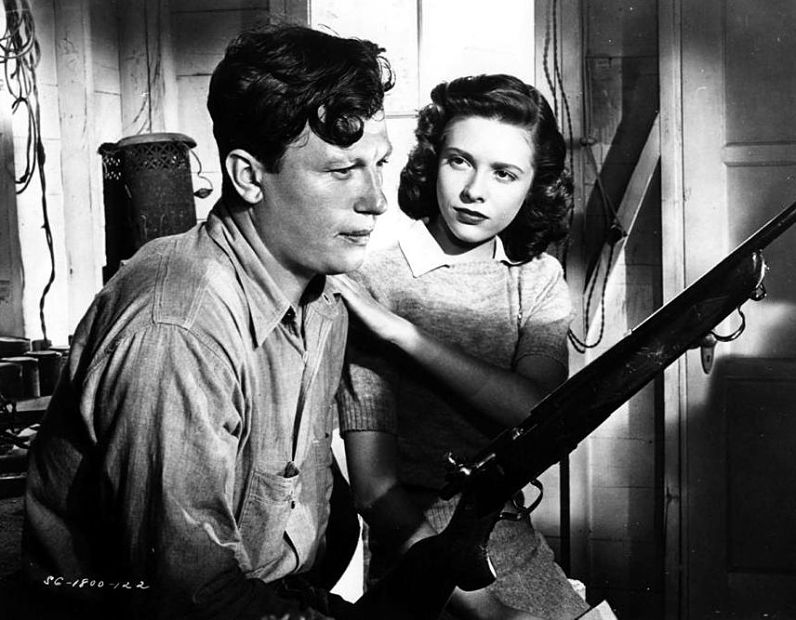 |
| Two well deserved Oscars. |
As you may surmise, the story is all about character. In fact, interestingly enough, there is no clear-cut antagonist in this film. Each of the soldiers are returning to an entirely changed America, one that will try to "rehabilitate" them at every opportunity.
The first man to return home is Homer Parrish, a Navy man. He lost his hands in the war and his family takes it very hard, especially his mother. His fiancee Wilma, however, is just glad her man is safely home. Still, Homer has difficulty adjusting to his new circumstances and how everyone looks upon him with pity (except Wilma). He is irritable, driving almost everyone away from him, and his confidence is shot.

The next guy to walk through his own front door is Army man, Al Stephenson, who appears to be returning home to the most pleasant conditions. His wife loves him, his children adore him, and he has immediately been promoted to Vice President and given a raise at the bank in which he works. Even so, he wants to make a difference in the lives of the numerous military men while they re-adjust to civilian life. His ideas are met with skepticism by the bank president and others who work with him, but Al maintains he will continue approving loans for servicemen where "sufficient collateral" isn't shown.
Then there's Fred Derry, who spent the war as a bombardier in the Army Air Force. He's coming home to a wife he knew for only a short time before getting sent overseas and virtually no prospect of a good job. After some struggle in locating his wife, he finds that she has gotten a job as a night club dancer. They are reunited and they spend his severance pay very lavishly. His wife, Marie, is very materialistic and shows no understanding for his PTSD.
 |
| A faithful wife? |
On the other hand, Al's daughter, Peggy shows a great deal of patience and kindness towards Fred. Although reluctant to admit at first, she has fallen in love with the married pilot and can't shake herself out of those feelings.
All of these elements bring about a wonderful amount of conflict and allows the audience to delve deeply into the emotions of the characters involved. Relationships are strained, new ones are formed, and struggles are very much prevalent. Two tent poles around which Hollywood has been pitched since Edison got kicked out of the business; relationships and conflict.
 |
| A wonderful showcase of deep focus cinematography. |
Okay, here's where I get back to the uniqueness of Robert Sherwood's screenplay. For one thing, there is no physical antagonist. It's different for each character and it connects with the idea of rehabilitating oneself to a world that has changed and moved on. No great mercy is bestowed upon the men who fought to preserve the nation from the tyrannical Adolf Hitler and Hiro Hito.
This is one of the central themes, and it plays into the meaning of the title, which is taken from one of Marie Derry's lines. The best years of these servicemen's lives were spent overseas fighting the war. They can't get them back and they have to do the best they can in the tough years ahead.
My apologies for the caption on Harold Russell's picture. It was highly insensitive and poorly thought out.
ReplyDelete